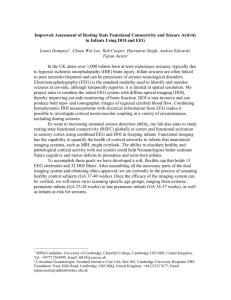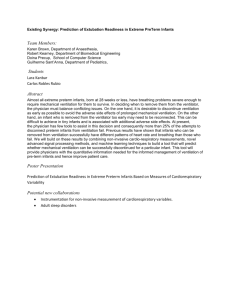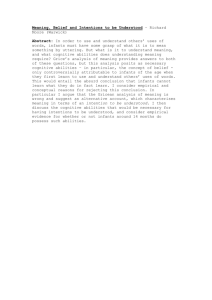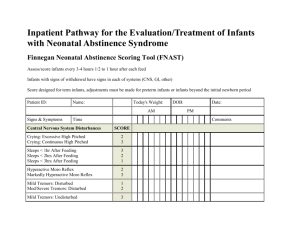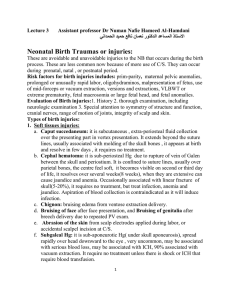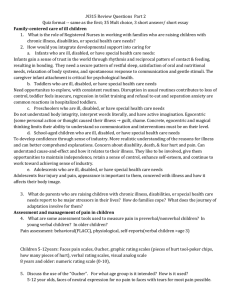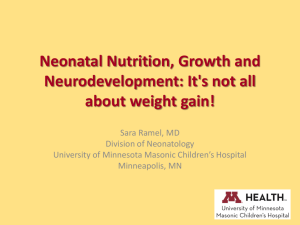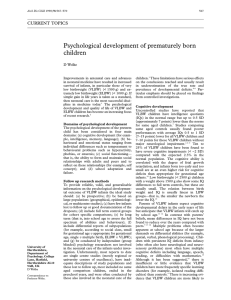Dina El Metwally Abs
advertisement
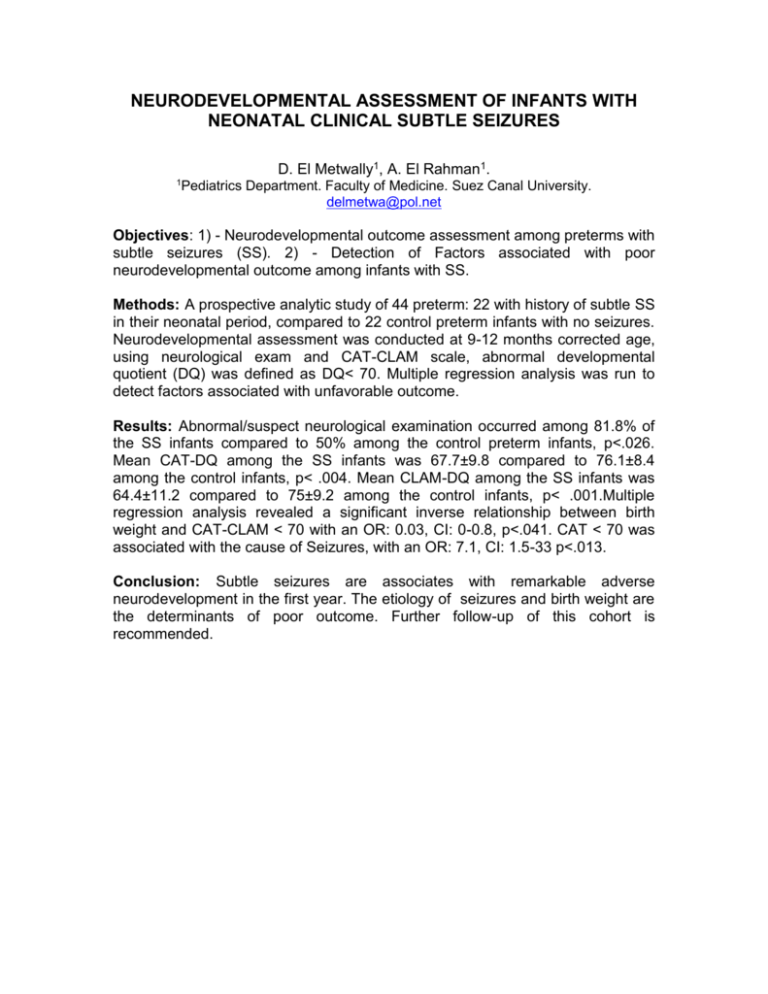
NEURODEVELOPMENTAL ASSESSMENT OF INFANTS WITH NEONATAL CLINICAL SUBTLE SEIZURES D. El Metwally1, A. El Rahman1. 1 Pediatrics Department. Faculty of Medicine. Suez Canal University. delmetwa@pol.net Objectives: 1) - Neurodevelopmental outcome assessment among preterms with subtle seizures (SS). 2) - Detection of Factors associated with poor neurodevelopmental outcome among infants with SS. Methods: A prospective analytic study of 44 preterm: 22 with history of subtle SS in their neonatal period, compared to 22 control preterm infants with no seizures. Neurodevelopmental assessment was conducted at 9-12 months corrected age, using neurological exam and CAT-CLAM scale, abnormal developmental quotient (DQ) was defined as DQ< 70. Multiple regression analysis was run to detect factors associated with unfavorable outcome. Results: Abnormal/suspect neurological examination occurred among 81.8% of the SS infants compared to 50% among the control preterm infants, p<.026. Mean CAT-DQ among the SS infants was 67.7±9.8 compared to 76.1±8.4 among the control infants, p< .004. Mean CLAM-DQ among the SS infants was 64.4±11.2 compared to 75±9.2 among the control infants, p< .001.Multiple regression analysis revealed a significant inverse relationship between birth weight and CAT-CLAM < 70 with an OR: 0.03, CI: 0-0.8, p<.041. CAT < 70 was associated with the cause of Seizures, with an OR: 7.1, CI: 1.5-33 p<.013. Conclusion: Subtle seizures are associates with remarkable adverse neurodevelopment in the first year. The etiology of seizures and birth weight are the determinants of poor outcome. Further follow-up of this cohort is recommended.



